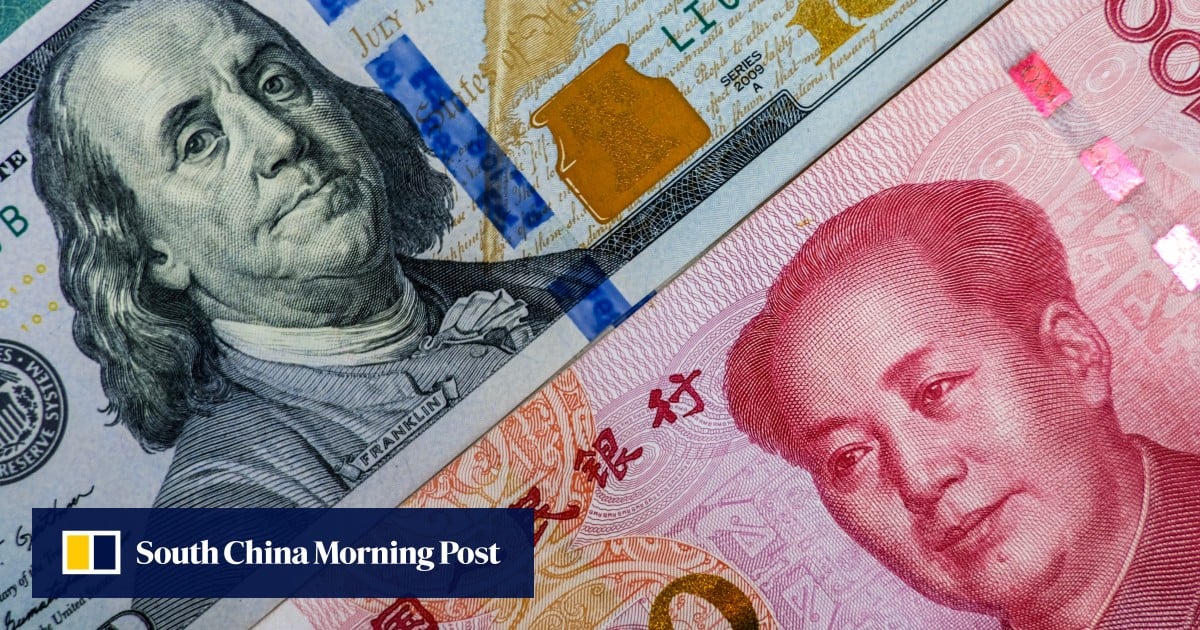Beijing could – if it seriously wished to – greatly devalue China’s yuan to prop up the nation’s exports. Or at the very least that’s what the current market fears.
But the world association of the fiscal marketplace states China’s leadership is unlikely to utilise this sort of a seismic option, even as the world’s 2nd-greatest financial state has been labouring to reverse a persistent downturn.
China’s yuan has depreciated steadily given that February, driven by the faltering post-pandemic economic climate and widening produce gap with other economies this kind of as the US, as effectively as dampening funds flows and trade.
And the will need to counter these kinds of pressures and keep aggressive has served gasoline considerations that China could “weaponise” the yuan’s trade price, as a weakened yuan would make Chinese exports less costly, boosting global product sales.
But the Institute of Global Finance (IIF) claims that this sort of a move by Beijing would be counterproductive, as it would intensify cash flight.
In a report on Thursday, the IIF pointed to China’s former yuan devaluations, in 2015 and 2016, indicating that alternatively than increase progress, the moves prompted an exodus of hard cash and assets, and that this served to tighten fiscal conditions and add to the expanding headwinds.
“Given plentiful liquidity and sizeable personal debt overhang, the possible for money flight is nevertheless very considerably alive, so that devaluation – nearly a decade afterwards – however isn’t an solution as a cyclical stimulus tool,” the IIF claimed.
As an alternative, it included, domestic easing will be ample for China to keep continuous growth.
Michael Pettis, a finance professor at Peking University’s Guanghua School of Management, mentioned a weaker yuan may well not be useful to China, which operates a big trade surplus with the rest of the globe. In its place, he claimed, a weaker yuan may even cut down China’s by now-subdued domestic need.
“A weaker yuan helps make China’s troubles worse,” Pettis reported. “I consider Beijing is seeking to maintain the forex as continual as doable.”
Nonetheless, he also observed that Beijing faces a balancing act in maintaining the yuan stable towards the US greenback, which is strengthening, while minimising the yuan’s instability towards a basket of other big currencies.
“Either a single generates particular added benefits and specific challenges, so they have to select in between people two,” Pettis extra. “It’s going to be an difficulty for a even though.”
How much will China go right after yuan slides to 16-year reduced against the US greenback?
How much will China go right after yuan slides to 16-year reduced against the US greenback?
To assistance China’s economic recovery, Beijing has been introducing various easing actions more than the past several weeks to promote credit progress.
In its quarterly financial coverage report in August, the PBOC pledged to “actively and steadily respond” to depreciation strain on the yuan.
The PBOC has previously mentioned it would not have interaction in “competitive devaluation”, following grievances from the US and other countries that China receives an unfair trade edge by intentionally retaining the yuan weak.
Guan Tao, global main economist with Financial institution of China Intercontinental and a former director with the Point out Administration of Foreign Exchange, reported marketplaces ought to not think the yuan will enter into a totally free fall as a end result of latest weak point.
“The central bank may possibly not react to day by day volatility in the yuan trade rate,” Guan said very last week in an interview with Yicai, a Shanghai-primarily based point out media group. “But if the volatility has an effect on money steadiness and value balance, it need to react.”





